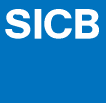 |
|
| Back to SICB '97 Spring Newsletter | |
| SICB Officers | |
SICB Encourages and Supports Student Members
Tom Wolcott, SICB Secretary
"Graduate students are our future," Jan Pechenik sagely observed in his famous last words as retiring DIZ Chair, and postdoctorals presumably are our post-larvae. SICB as a whole and its constituent Divisions are striving to make participation in the Society and attendance at its meetings easier and more concretely useful for our scientific offspring. The cost of meetings can be a real problem for students, who are not paid the astronomical salaries routinely squandered on faculty and other professional biologists. To ensure that penury doesn't deny student members the opportunity to present their science, SICB will waive registration fees and/or provide shared lodgings in meeting hotels. As a condition of these awards, recipients must agree to donate time during one half-day session, either as a room monitor, with registration assistance or with business office support. In recent years, we have been able to meet all requests for such assistance from qualifying students!
Of course, we academics hope that our students will find lucrative jobs like we all have and thus become able to contribute generously to SICB and its student aid programs. To this end we maintain a job listing board at meetings and on the SICB Web page. SICB and the Graduate Student/Postdoctoral Affairs Committee have organized a series of workshops at which students can get answers to job questions that all too often are poorly addressed by advisors: What kinds of jobs exist out there? How do I apply, interview and land a job? How do I keep the job? How do I get funding to do the job?
To establish their credentials as scientists, students need to do independent research. Sometimes, modest additional resources can energize a quantum leap in accomplishment. That sort of seed money can be granted by new SICB Grants-in-Aid of Research program (see article on page 11). The credentials that students earn become useful only when the right people know about them. SICB, by drawing together an unusually cross-disciplinary group of scientists, also provides students (as well as professionals) with tremendous opportunities for networking.
In addition to the Society-wide programs, several divisions have mechanisms to encourage student involvement.
Division of Animal Behavior (DAB). DAB has Best Student Poster and Oral Presentation awards, as well as the Adrian M. Wenner "Strong Inference Award" for the paper or poster best exemplifying the "strong inference" approach to research (Platt, 1964).
Division of Comparative Endo-crinology (DCE). DCE has two $100 awards: the Aubrey Gorbman Award for Best Talk and another for the Best Poster Presentation. They also typically designate one to two honorable mentions in each category and present them with a back issue of the American Zoologist (courtesy of Jim Hanken). DCE has a graduate student on their Nominations Committee, a new representative to the Graduate Student/Postdoctoral Affairs Committee, and are trying to include graduate students on working groups within the Division, especially those planning mini-symposia of contributed papers for the national meeting. DCE supports graduate students' travel and lodging with a big part of the divisional money that goes to regional meetings.
Division of Comparative Physiology & Biochemistry (DCPB). This Division has a Graduate Student/Postdoctoral Representative as a non-voting member on its Executive Board and provides outstanding networking opportunities. DCPB also presents the George Bartholomew Award to an outstanding young scientist (within seven years of the Ph.D.).
Division of Invertebrate Zoology (DIZ). Under Jan Pechenik's leadership, DIZ has revamped its award program to better serve the goals of encouraging participation and continued membership. DIZ now has Best Student Presentation Awards for both talks and posters. In each category there are two awardees. The first-place winner receives $100 plus a $50 publisher's gift certificate, and both the first- and second-place winners receive complimentary renewal of their SICB membership. DIZ also selects recipients of the Libbie Hyman Memorial Scholarship, a truly missionary program open to all students that supports the students' first experiences in courses or invertebrate research at a marine, freshwater or terrestrial field station. DIZ maintains an active representative to the Graduate Student/Postdoctoral Affairs Committee.
Division of Neurobiology (DNB). DNB awards $100 for the Best Student Presentation (oral or poster) in neurobiology.
Division of Systematic and Evolutionary Biology (DSEB). Though DSEB is not large enough to offer separate divisional awards, they systematically (of course) support the Society-wide mechanisms for assistance with registration and housing.
Division of Vertebrate Morphology (DVM). DVM has awards consisting of a certificate and $100 in books from University of Chicago Press, for single-author presentations. In addition, DVM offers the D. Dwight Davis Prize for Best Student Talk and a Best Student Poster Award.
Clearly, SICB is doing a lot to entice, sustain and nourish the next generation of biological scientists. It is equally obvious that, in a scientific subculture that rewards efficient productivity and hence specialization much more readily than it does comparison, integration and generalization, we cannot rest on our laurels. To paraphrase the challenge Dominique Homberger passed along, "Are we allowing ourselves, as mentors, to assume it is not our job...to teach students about the professional, ethical, personal and spiritual aspects of being a scientist?...to instill good writing skills?...to ensure that students find jobs of their own?...to respond vigorously to proposals for phasing out academic tenure (because it won't affect OUR generation of scientists)?...to teach our trainees how to observe, think and formulate their own questions rather than to concentrate exclusively on cranking out data that will answer OUR questions and enhance OUR careers?...to inculcate the value of becoming broadly educated even when the obvious quick payoffs come from not 'wasting time' on areas outside one's tight focus?"
"Who," she asks, "will have time and courage enough to tackle those questions?" I hope we will.
The Society for Integrative and Comparative Biology
1313 Dolley Madison Blvd Suite 402
McLean VA 22101
Phone: 703-790-1745 or 800-955-1236
FAX: 703-790-2672
E-mail: SICB@BurkInc.com